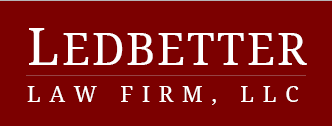Does Chapter 13 bankruptcy seem like the right solution to your financial situation? You aren’t alone. There are many reasons why this particular bankruptcy process appeals to people in St. Louis and around the United States. Chapter 13 bankruptcy could help you keep your home and prevent foreclosure. As well, Chapter 13 bankruptcy doesn’t involve liquidation of your assets, as is necessary in a Chapter 7 bankruptcy case.
Yet, not everyone in St. Louis is eligible for Chapter 13 bankruptcy, and in some situations, there are better solutions to your financial trouble. In this post, our highly respected bankruptcy law firm in St. Louis covers the legal requirements to file Chapter 13 bankruptcy.
#1: No Businesses Allowed
Chapter 13 bankruptcy is only for individual debtors. Corporations, non-profits, partnerships, and limited liability companies must file for bankruptcy under a separate chapter of the federal Bankruptcy Code. Of course, this is the baseline requirement for Chapter 13 bankruptcy and many individuals are still ineligible for this particular type of bankruptcy.

#2: You Must Complete Credit Counseling
Federal law requires that any individual filing for Chapter 13 bankruptcy complete credit counseling within six months of filing a bankruptcy petition. This particular requirement actually applies to Chapter 7 bankruptcy cases, as well. Therefore, any St. Louis bankruptcy lawyer will recommend finding a credit-counseling agency after your initial consultation.
Keep in mind that credit counseling is free to individuals seeking to file for Chapter 13 bankruptcy and nothing recommended by a credit counselor is mandatory. These counseling sessions can lead to excellent advice or even a solution to your financial problem, but you don’t have to try any of the recommendations to file for Chapter 13 bankruptcy.
#3: You Must Be Up-to-Date on Taxes
One of the most overlooked requirements for Chapter 13 bankruptcy is being current with your income tax returns. You must have proof you filed federal and state income tax returns for the four years before filing for Chapter 13 bankruptcy. Even if you have outstanding tax debt that will need to be repaid through your Chapter 13 bankruptcy repayment plan.
What is proof of your income tax returns? You will need to show your returns or transcripts of your returns to the bankruptcy court. If you have questions on the necessity of up-to-date taxes or exceptions to this requirement, you should speak to a St. Louis bankruptcy lawyer.
#4: There Is a Debt Ceiling for Chapter 13 Bankruptcy

The key difference between Chapter 13 bankruptcy and Chapter 7 bankruptcy is the structure and process of repaying outstanding debts. In a Chapter 7 bankruptcy all of your non-exempt assets (defined here), are liquidated to repay creditors. Alternatively, in a Chapter 13 bankruptcy, you must adhere to a repayment plan for three to five years.
The bankruptcy court needs to be assured that you can repay your debts in this time period. One way the court can try to ensure a successful Chapter 13 bankruptcy is limiting the outstanding debt allowed. There are different limitations for secured and unsecured debt, and to learn more you should talk with an attorney knowledgeable of the current cap on both.
#5: You Must Show Enough Disposable Income
Another way the bankruptcy court in St. Louis will assess your ability to follow a repayment plan under Chapter 13 bankruptcy is a look at your disposable income. Disposable income is the income you have left after subtracting necessary payments on secured debts and other mandatory expenses, such as utilities. You need to show you can repay specific debts in your repayment plan through disposable income to have your Chapter 13 repayment plan approved.
Disposable income can come from sources other than wages. While having a job is the best way to show the judge you can meet your repayment obligations, you may also have income from Social Security benefits, workers’ compensation, pension payments, child support, and other sources of income. A St. Louis bankruptcy lawyer can help assess what sources qualify for the calculation of your disposable income.
To learn more about Chapter 13 bankruptcy, contact our team at Ledbetter Law Firm, LLC. You can always reach our St. Louis office by calling (314) 925-0239.
